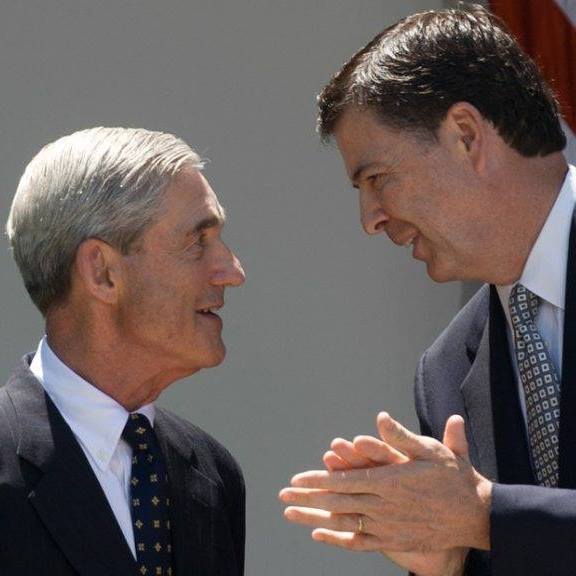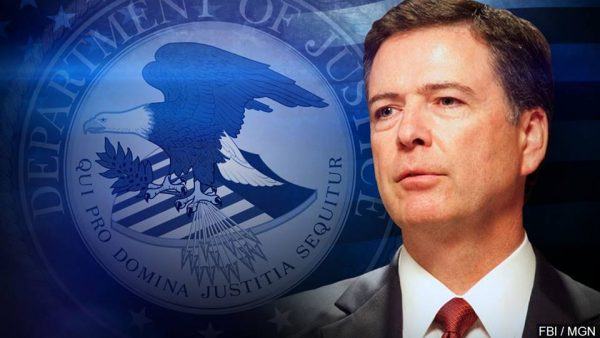Change management is as much situational as it is philosophical. Former Federal Bureau of Investigation (FBI) Directors Robert Mueller and James Comey are change managers with two very different leadership styles. They served as directors at the FBI during two very different times. Their leadership styles impacted their decisions as change managers as much as the eras they served in, and those processes of change impacted the organization’s culture.
Change Managers Initiate Change from the Top
The term “change management” (CM) is used to describe the processes of change at any organization and that process comes from the top as it is dependent on the leadership style of the organization’s decision-maker as well as context of time and space during those decisions. There are a number of reasons organizations go through change including organizational restructuring, changes in business practices, disruptive technologies, required changes from customer/client, and crisis. As Peter Senge states, “A learning organization is an organization that is continually expanding its capacity to create its future. The organization with an over the horizon perspective is more likely to be a learning organization that identifies disruptors that lead to conflict and proactively resolves conflict before it becomes a crisis.”
When looking at CM, it’s important to distinguish management processes from leadership processes; they are related but not the same. Management processes requires positional authority to allocate or direct people, money, and equipment toward a goal and/or objective. Leadership processes do not require positional authority; rather, it’s about influencing and inspiring others to behave in a preferred way or towards a preferred outcome. Whether a person is a great manager, leader, or both, the most critical skill is understanding how and when to use those competencies in the framework of time and space. Situational awareness is key to situational leadership, and knowing when to hold ‘em and when to fold ‘em is as important in running an organization as it is playing a hand of cards.
Change Managers are Not in a Popularity Contest
Robin Sharma has said, “Leadership is not a popularity contest; it’s about leaving your ego at the door. The name of the game is to lead without a title.” This idea was central to Comey’s philosophy that great leaders had the confidence of humility. He embraced a style of servant leadership which included several “all hands” conferences where he encouraged subordinates to voice up. Comey often spoke about the need for all employees in the organization to accept leadership responsibilities. Mueller’s style was more dependent on positional authority. His autocratic style was transactional and linear. He led the organization through a rigid hierarchal structure of command and control. Directives were more effective than influencers and orders came before any solicited suggestions. In historical context, both Comey and Mueller were the perfect change agent at the time of their service. After the tragedy of September 11, 2001, the FBI needed a manager whose steady hand could steer the organization through troubled waters of re-organization. Mueller was perfect for telling the FBI employees what they needed, and Comey was perfect for listening to the needs of the FBI employees.

Change Managers Know that Life is a Series of Choices and Consequences
Peter Senge says, “The world is made of circles and we think in straight lines.” A change manager like Mueller thinks in straight lines. He methodically re-organized every division at FBI headquarters (FBI HQ) as well as how the field offices reported to FBI HQ. It was necessary in the time and space to secure the organization’s base as an intelligence agency with law enforcement responsibilities. There were many critics that wanted to separate the organization and Mueller was responsible for making the logical counterargument. As time and space changed, Director Comey saw the need to re-balance the circles within the organization and recognized the integrative nature of the operational divisions and FBI HQ. More autonomy was given to the field offices with sustained accountability.
All relationships are held together by a common baseline of accepted norms of behavior. Regardless of the type of relationship, it is balanced by trust and control processes. In a functional relationship this process leads to stability and balance of trust and control where there is predictability of behavior against the baseline.
Change Managers Question the Questions of Change
Not all organizational change is welcomed by all members of the group, as it represents an unwanted shift in the baseline of expected norms of behavior. As Herb Cohen says, “You and I do not see things as they are. We see things as we are.” Certainly, management has to show more direction and conviction during times of crisis than times of stability. Stephen Covey states these people issues involve three constraints in life: “change, choice, and principles.” Both directors led by their principles and understood that change ultimately meant choice. During Mueller’s tenure, some employees felt the changes unnecessary or counterproductive and, as a result trust, went down as organizational controls went up to ensure compliance. The FBI’s management manual read that managers should make changes to the operational baseline and then seek consensus, but absent consensus they should hold people accountable. Comey’s servant style meant management engaging employees in townhall and all-hands meetings, soliciting opinions about change, including what the new FBI headquarters building would look like. Comey may have made the final decision but his style gave the appearance of choice to those affected. Both Mueller and Comey understood that, ultimately, they would be judged by the employees as a leader, and Stephen Covey was right when he said, “Leadership is a choice, not a position.”
Change Managers Communicate their Vison
My father once told me that I had two ears and one mouth so I should listen twice as much as I speak. A popular story about Director Mueller proceeds: once, after listening to an FBI agent complain about a problem, he lectured the agent about not bringing him a solution. In contrast, Comey was known to have long employee “bitch sessions” that were more cathartic than productive. As James Hughes says, “The art of communication is the language of leadership.” Knowing the vision of change gives clarity to the road ahead.

Change Managers Impact the Cultural Landscape
During the 9/11 crisis Director Mueller managed, he understood that the FBI had to endure a cultural shift away from its reliance on the FBI agent to also being the primary intelligence analyst. This meant creating and expanding the intelligence analyst position. Some agents took offense, considering the fact that FBI agents had been collectors and analysts of information since 1908. Agents weren’t congressionally granted arrest powers or authorized to carry weapons until 1934. As times changed so did context, and during the Comey era a new culture of integrated training took place at the FBI Academy with agents and analysts taking basic courses together. As Robin Sharma states, “A leadership culture is one where everyone thinks like an owner, a CEO or a managing director. It’s one where everyone is entrepreneurial and proactive.” It was with this philopshy in mind that the On-Board New Employee (ONE) program was created to indoctrinate new employees. As Adam Grant says, “The culture of a workplace—an organization’s values, norms and practices—has a huge impact on our happiness and success.”
Change Managers Know you Must Go Backwards Before Moving Forward
Ellen Glasgow says, “All change is not growth, as all movement is not forward.” It is true that in most sports you must first go backwards to move forward. Whether its swinging a golf club or kicking a ball in order to build momentum, you have to go back to move forward. Similarly, on all the popular home renovation shows, the new kitchen comes after the demolition, but good change managers are really balance agents as much as change managers. They pay attention to both the organization and the members of the organization, and don’t simply initiate change for the sake of change when a simple re-balance will do. Director Mueller had to demo some long-held beliefs and practices in order to build a strong FBI. As a result, the Weapons of Mass Destruction Countermeasures Unit is now the Weapons of Mass Destruction Directorate and the National Infrastructure Protection and Computer Intrusion (NIPCI) section is now the Cyber Division. From the demo came an increased mission, budget, and growth. Comey’s tenure required less demolition and more re-balancing of priorities with new initiatives, with technology investments in looking over the horizon at potential new threats.

Change Managers are Crisis-Prepared, not Crisis-Prone
Both Muller’s autocratic leadership style and Comey’s servant leadership style can be effective to lead through crisis. In Comey’s last year of service, he made a principled choice providing a prosecutorial opinion regarding an FBI investigation. It is not unusual for an FBI agent to provide a Prosecutive Report to the United States Attorney’s office that summarizes inculpatory as well as exculpatory evidence and the agent’s opinion. Director Comey did more than that in bypassing the Department of Justice and reporting to the press the FBI’s opinion. It led to a letter from Attorney General Jeff Sessions and his deputy, Rod Rosenstein, advising Donald Trump to fire Director Comey even though Trump stated he fired Comey over the Russian investigation. Inspector General Michael Horowitz later called Comey’s decision an act of insubordination. Its unlikely Director Mueller would have acted as Comey in that situation simply because he was wedded to command and control architecture of the hierarchy. Comey’s miscalculation turned out to be damaging to the FBI’s culture and reputation. He introduced disruptors that contributed to conflict leading to crisis. Situational awareness is key to situational leadership, and knowing when to hold ‘em and when to fold ‘em is as important in running an organization as it is playing a hand of cards. Robert Mueller and James Comey are change managers serving during two very different situations and owning two very different philosophies of leadership. They both impacted the FBI’s culture and reputation, and time will judge whether these change managers made the FBI better crisis-prepared or crisis-prone.
















